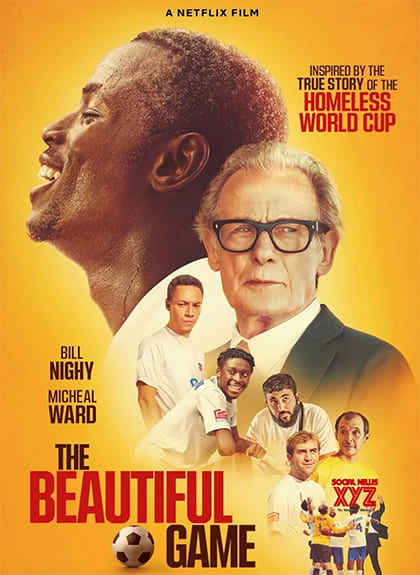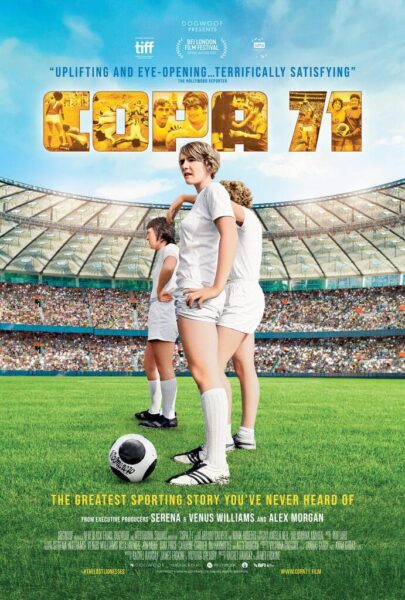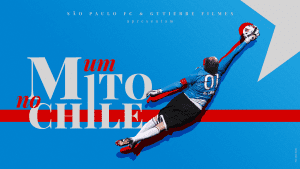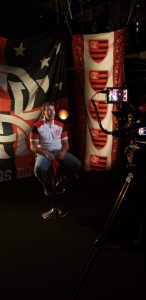Sampaio is een wijk in Rio de Janeiro die slechts op een paar kilometers afstand van het mythische Maracanã Stadion ligt, plaats waar de finale van het Wereldkampioenschap 2014 werd gespeeld. De wijk is gekend voor zijn sporttraditie en –folklore. Elk jaar vindt een voetbalkampioenschap tussen lokale favela’s, met 14 deelnemende ploegen, plaats op één uniek voetbalveld. Elke ploeg draagt de kleuren en rituelen van de eigen gemeenschap met zich mee. Twee ploegen nemen het tegen elkaar op in de finale: Geração tegen Juventude.
Regisseur van de film is Eryk Rocha, zoon van Brazilië’s meest legendarische regisseur Glauber Rocha. Dit jaar maakt hij een film over het rijke cinematografische geschiedenis van zijn land, de ‘Cinema Novo’, maar hij interesseert zich ook voor voetbal. Ook al gaat ‘Campo de jogo’ over meer dan enkel het spel. Rocha: “Campo de jogo is het veld van een ingebeeld spel, een assist voor het ontplooien van een verhaal dat een grote Braziliaanse stad ensceneert met al zijn contrasten tussen zijn schoonheden en onrechtvaardigheden, uitgebeeld in de eenvoudige handelingen van het spel. Vanuit deze hoek wordt voetbal benadert als een cultuur, en de film een symbool van de Braziliaanse cultuur. Met andere woorden: de manier van zijn, leven en verbinden van het Braziliaanse volk. Voetbal voor het volk, ver van elke vorm van merchandising en marketing.”
***
Sampaio est un quartier à Rio de Janeiro à quelques kilomètres de distance du mythique Stade Maracanã, où a eu lieu la finale de la Coupe du Monde 2014. Le quartier est réputé pour ses traditions et folklore liées au football. Chaque année un championnat de foot est organisé parmi les favelas locaux, 14 équipes, sur un seul terrain. Chaque équipe porte les couleurs et les rituels de sa communauté. La finale se joue entre deux équipes : Geração et Juventude.
Le réalisateur du film est Eryk Rocha, fils du réalisateur le plus légendaire du Brésil, Glauber Rocha. Cette année 2016 Eryk a fait un film, ‘Cinema Novo’, sur l’histoire et patrimoine cinématographiques très riches du son pays, mais il s’intéresse aussi au foot. Même s’il s’agit dans ‘Campo de jogo’ de plus que strictement le jeu. Rocha : « ‘Campo de jogo’ est le terrain d’un jeu imaginé, la scène pour développer l’histoire d’une grande ville brésilienne qui met en avant ses beautés comme ses injustices. A travers les gestes simples du jeu, le football est pris comme une culture, et le film symbolise le peuple brésilien et la culture brésilienne. Le jeu est la traduction d’une façon d’être, de vivre et de se lier : le football du peuple, loin de quelconque forme de merchandising ou marketing ».






